- Home
- About
- Advantages of JPods
- Capacity
- Conservation
- Economics
- 10X Capital Savings
- Base the $ on Energy
- Dangerous Economic Assumptions
- Free Markets
- Jobs
- Land Use
- Linear Barriers to Commerce and Nature
- Metrics: Replace GDP with Disposable Energy
- Parking
- Supply_Demand
- Free Market Efficiency
- Net Energy Decline
- Inaccurate IEA Forecasts
- 'Titanic' Oil Economy
- Paychecks and Oil
- History
- Lifeboat Paradox
- Links
- Management Team
- Metrics
- Payback
- Peak Oil
- Project Flow
- Recipe
- Solar
- Technologies
- What are JPods
- Why JPods®
- Be Involved
- Key Steps
- Franchise Agreement (draft)
- Solar Mobility Act
- Own and Operate a JPods Network
- Become a JPods Supplier
- Design Your Own JPods Network
- Investors
- Spread The Word
- 8-80 Cities
- Agreements
- Cities of the Sun
- Domestic War by 2023
- Kitty Hawk Network
- Regulation
- San Jose State
- Scale Model
- Railroad 1862
- News
- Cities
- Contacts
You are here
Boston Convention Center
Track 61
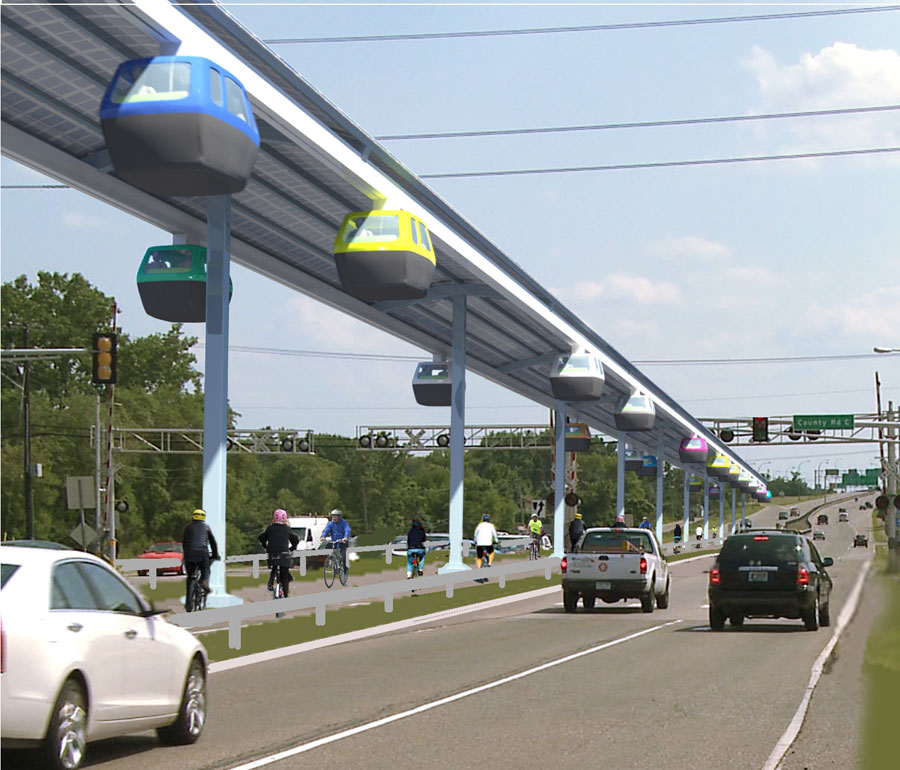
Track 61, Boston, between Seaport Convention Center and Back Bay from Bill James on Vimeo.
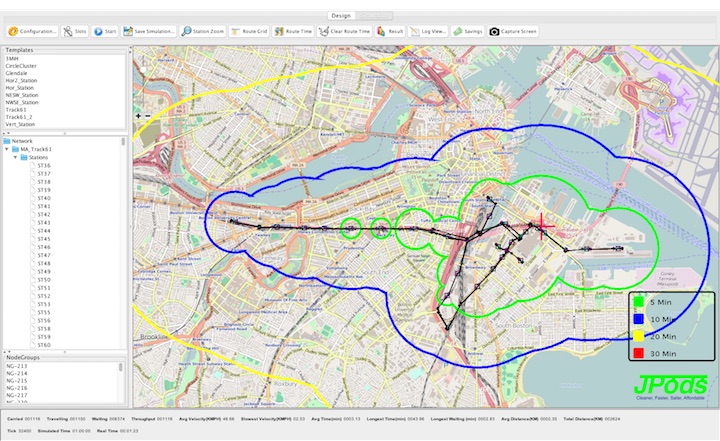
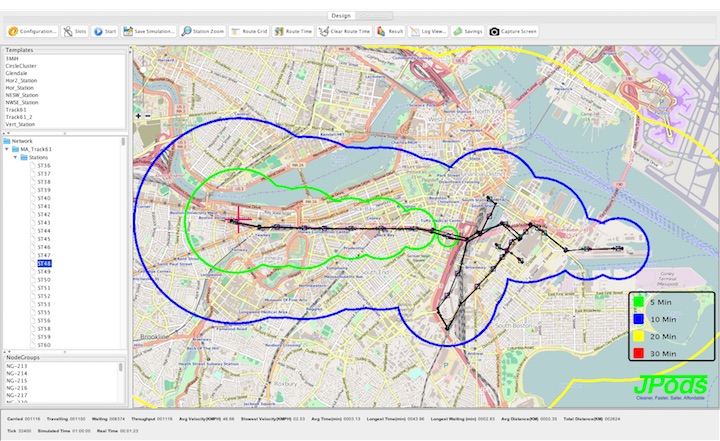
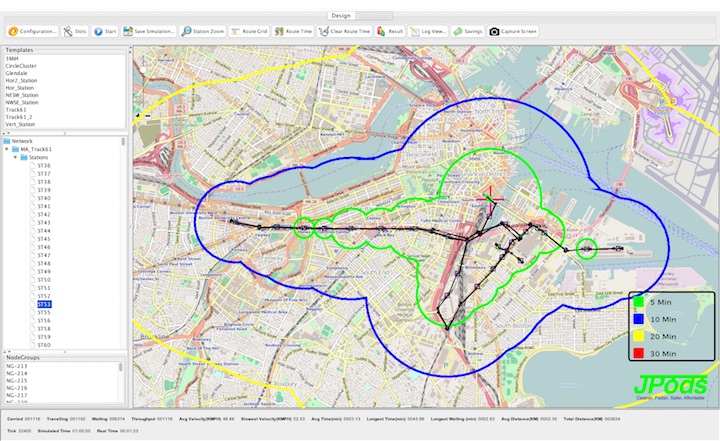
Grand Junction combined with Track 61
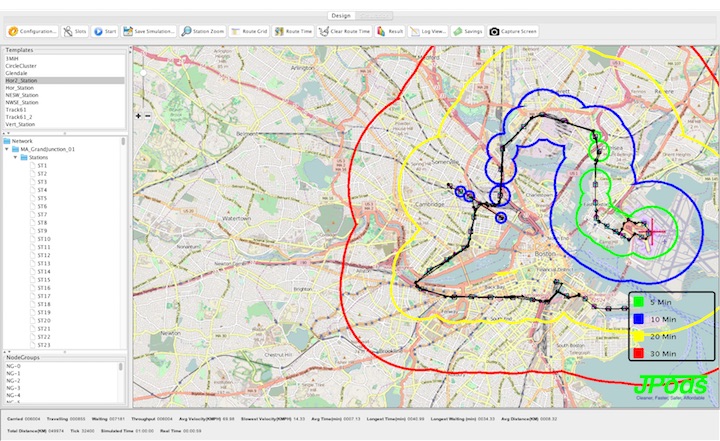
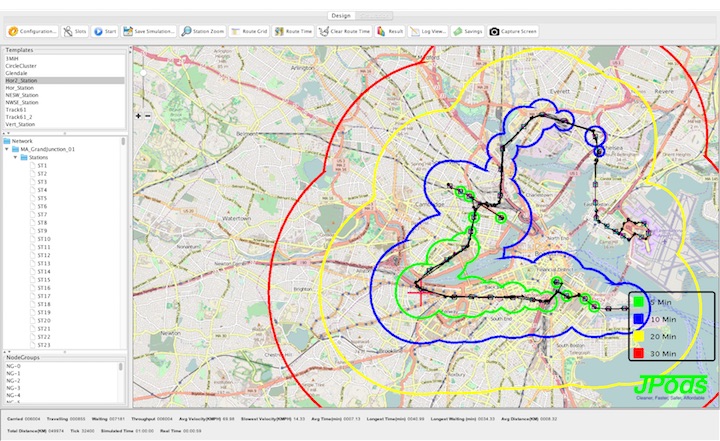
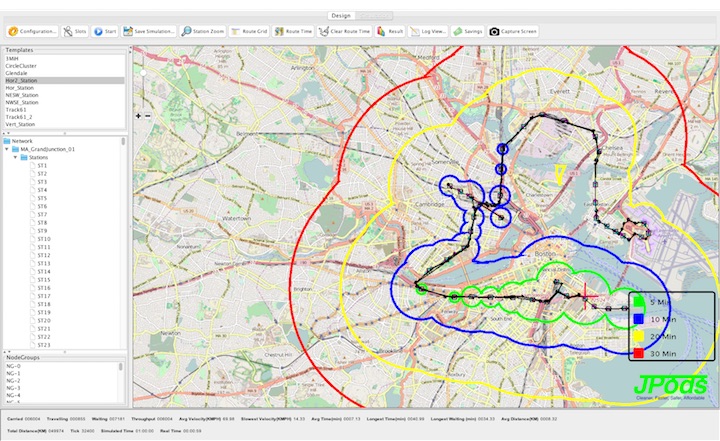
Bain Presentation 160621, email quality
Bain Presentation 160621, press quality
Link to the Performance Standards Law
Boston City Council hearing, Oct 5, 2015. We believe the hearing will result in a Boston City Council resolution of support for Massachusetts Senate Bill #1837.
JPods builds on the success of the Morgantown PRT network. An independent audit in 2010 notes this network pays for itself every 5 years.
Barrier to innovation:
Under the Federal communcations monopoly there was nearly a century of rotary dial telephones. Competition was suppresses.
After that monopoly was declared unconstitutional in 1982, liberty was restored to people and people selected innovatons that created millions of jobs, delivering better services at lower costs. #1837 will restore liberty to the people to choose transportation networks.
Support:
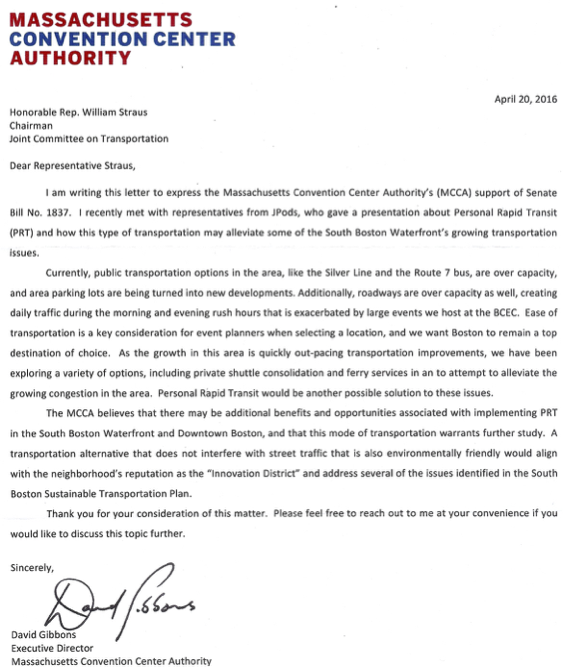
Letter from Old North Church
Dear Sal,
I am a resident of Charlestown and work in Boston. In the past decade traffic congestion in town has become ridiculous. All the talk of moving more people onto the MBTA does no good for residents of Charlestown. By the time the Orange Line reaches Bunker Hill at rush hour, it is completely packed. Getting to and from offices on the South Boston Waterfront is a nightmare.
I urge you to support S.1837, a bill which would permit the installation of a privately financed Personal Rapid Transit system along public rights or way. The bill would allow the city of Boston and potentially other congested cities to explore the feasibility of energy efficient PRTs as a solution to our severe congestion. A PRT system is feasible only if grant access to public rights of way.
The PRT system to be considered would be suspended above roadways, eliminating congestion. It would be solar powered, making it highly energy efficient. It could be privately funded and run, reducing the strain on the MBTA and the state budget. S.1837 includes all these considerations. Please help pass the bill in this session.
Thank you.
Steve Ayres
The Rev. Stephen T. Ayres
Vicar and Executive Director, Old North Church and Foundation
193 Salem Street, Boston, MA 02113
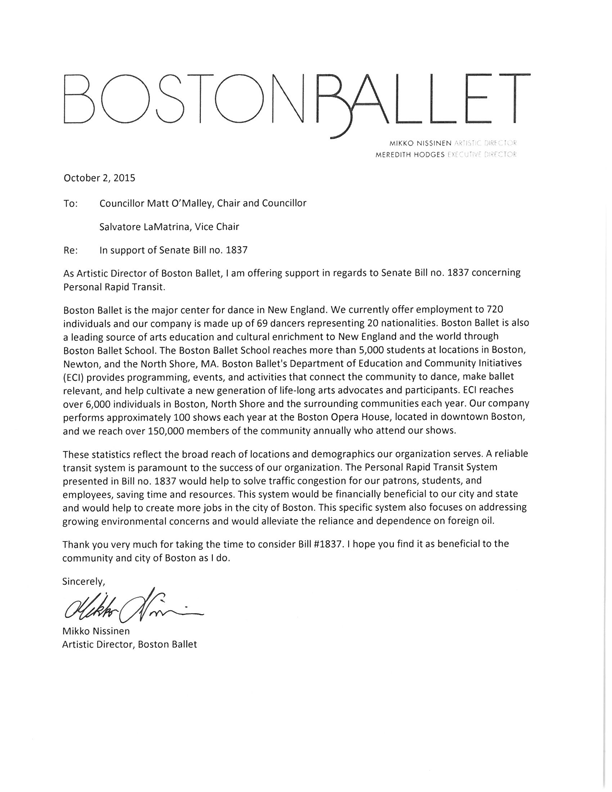
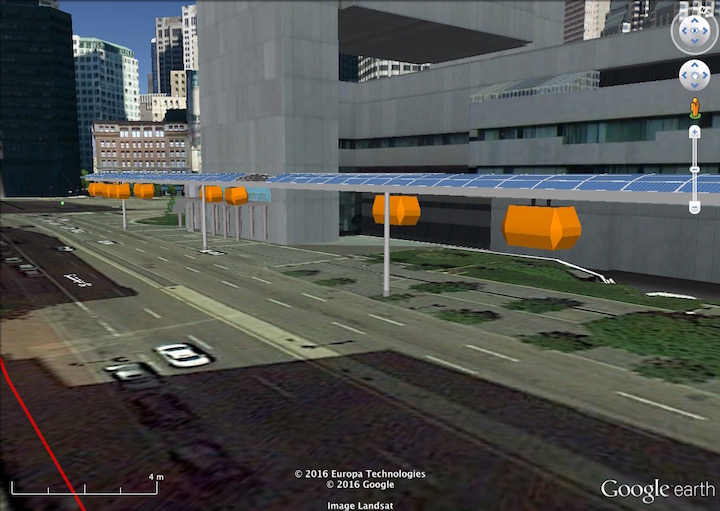
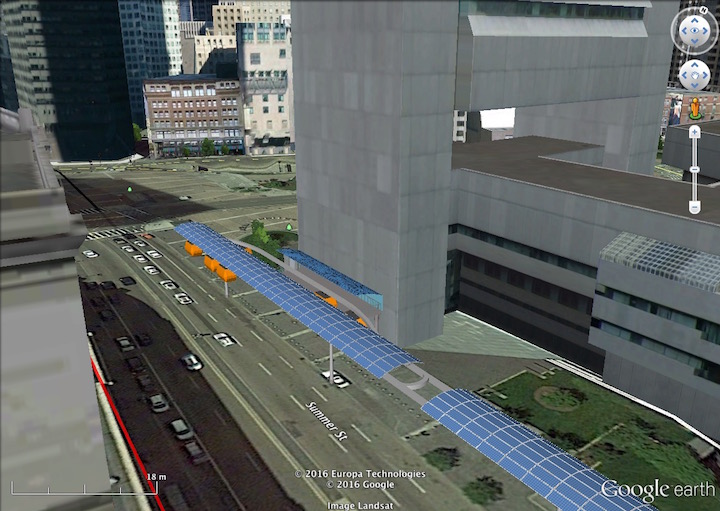
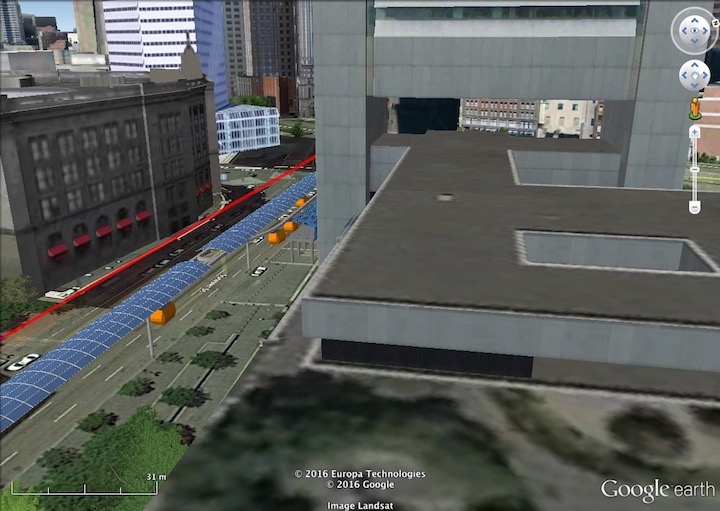
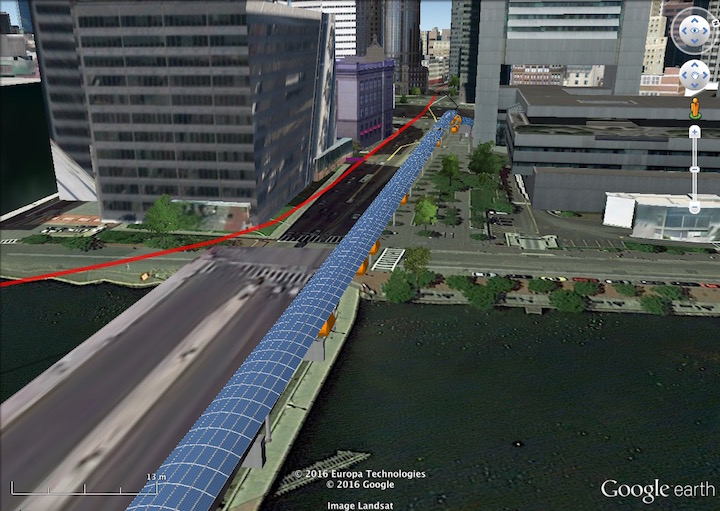
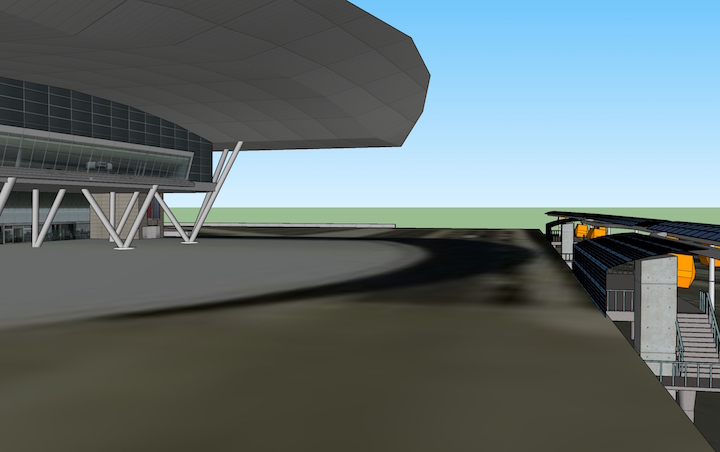
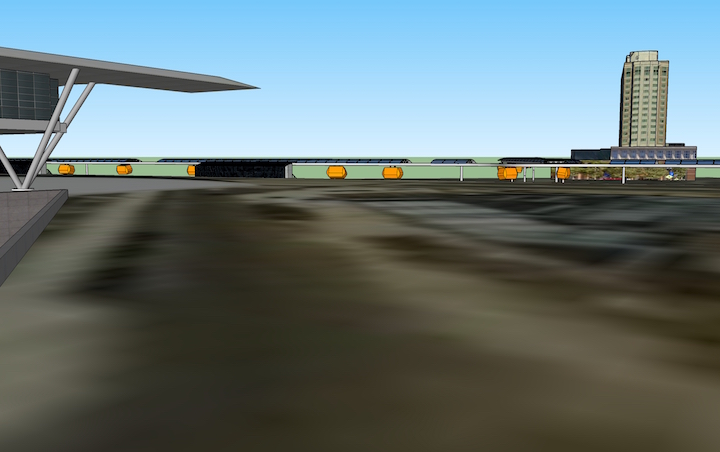
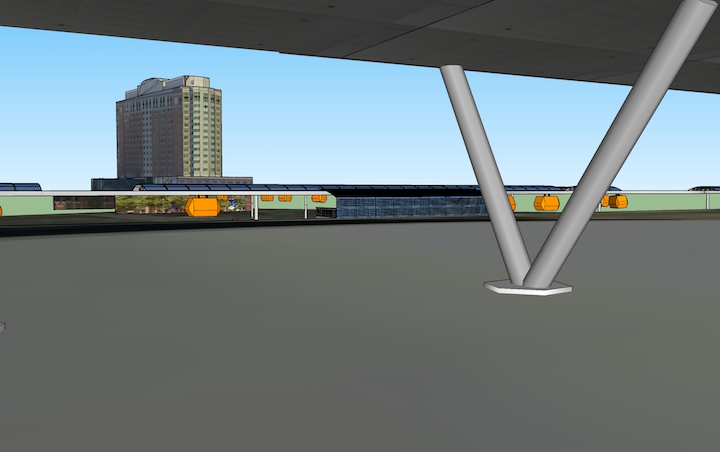
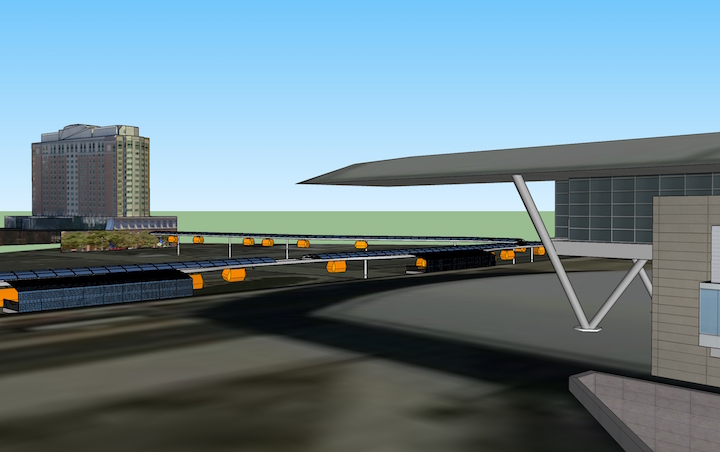
Economic Development documents
90 Second Massachusetts JPods from Bill James on Vimeo.
Congestion can solved by recovering $9 billion a year from the $19.9 billion a year traffic costs the people of Massachusetts. Once liberty to choose mobility solutions is restored, as specified by Massachusetts Senate Bill #1837, people will choose cleaner, faster, safer, and more affordable mobility networks than government mandated highways and mass transit.
Yearly traffic costs in Massachusetts are about $19.9 billion:
- $9.9 billion per year sent of foreign gasoline (link).
- $6.0 billion per year on accidents (link).
- $3.0 billion per year spent on congestion (link).
Yet, radically safer and more efficient transportation is very well understood:
- Freight railroads average 476 ton-miles per gallon (link).
- The Personal Rapid Transit (PRT or podcar) network in Morgantown has delivered 110 million oil-free, injury-free passenger-miles since being built as a solution to the 1973 Oil Embargo in 1975. In that same period of zero injuries, 1.6 million Americans died on the government highway monopoly. Highway accidents are not accidents. Who they happen to is random, that they happen is a design feature of the highway network.
In addition, Massachusetts was founded and liberty established powered within a solar budget. In 1910 Thomas Edison noted it was practical to have all the electrical energy we need provided by sunshine:
"Sunshine is spread out thin and so is electricity. Perhaps they are the same, Sunshine is a form of energy, and the winds and the tides are manifestations of energy..... Do we use them? Oh, no! We burn up wood and coal, as renters burn up the front fence for fuel. We live like squatters, not as if we owned the property.... There must surely come a time when heat and power will be stored in unlimited quantities in every community, all gathered by natural forces. Electricity ought to be as cheap as oxygen...."
Background documents
- A_Secaucus Law 2014-23, Performance Standards. This law applies to transport infrastructure the frame work that ended the century of rotary telephones in communications. It restore transport infrastructure to free markets.
- B_2004-A2031_NJ Legislature Law Directing the Study of PRT.
- C_NJ's $13.5 Billion per Year Gasoline Costs
- D_NHTSA_$871 Billion per Year Cost of Traffic Accidents, $14.4 Billion per Year in NJ
- E_Report NJDOT on the $8.6 Billion per Year Cost of Congestion
- F_Constitutional Basis for Restoring Free Markets to Transport Infrastructure
- G_Mayor of Morgantown Letter on the Effectiveness of the PRT Network in Morgantown
- H_SenateLetter on PRT as the Solution to the 1973 Oil Embargo
- I_7503_Congressional Office of Technology Assessment Study PB-244854 on PRT as the Solution to the 1973 Oil Embargo
- J_WVU PRT Benefit Cost Report_2010
- K_New Jersey Legislature Study by BAH 070515
Economic Development documents
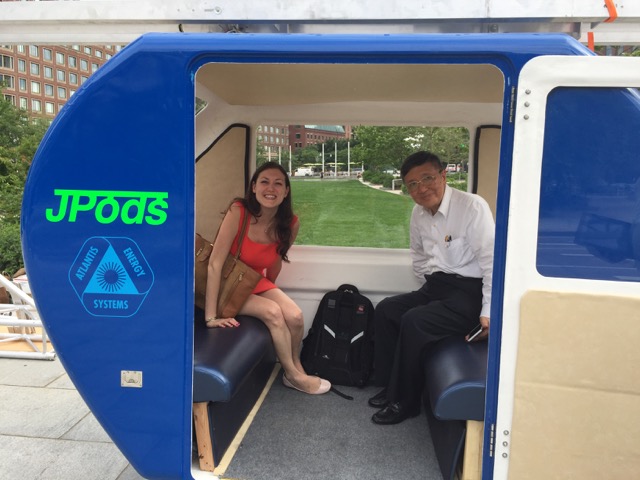
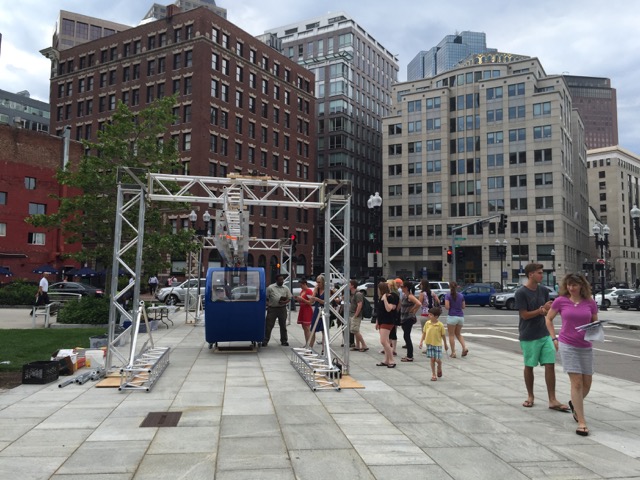
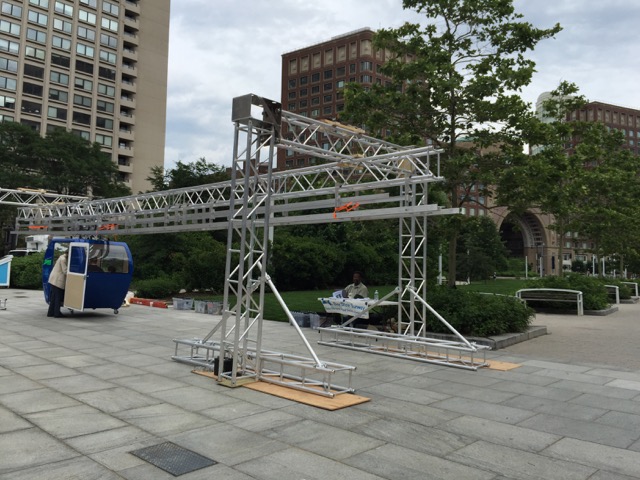
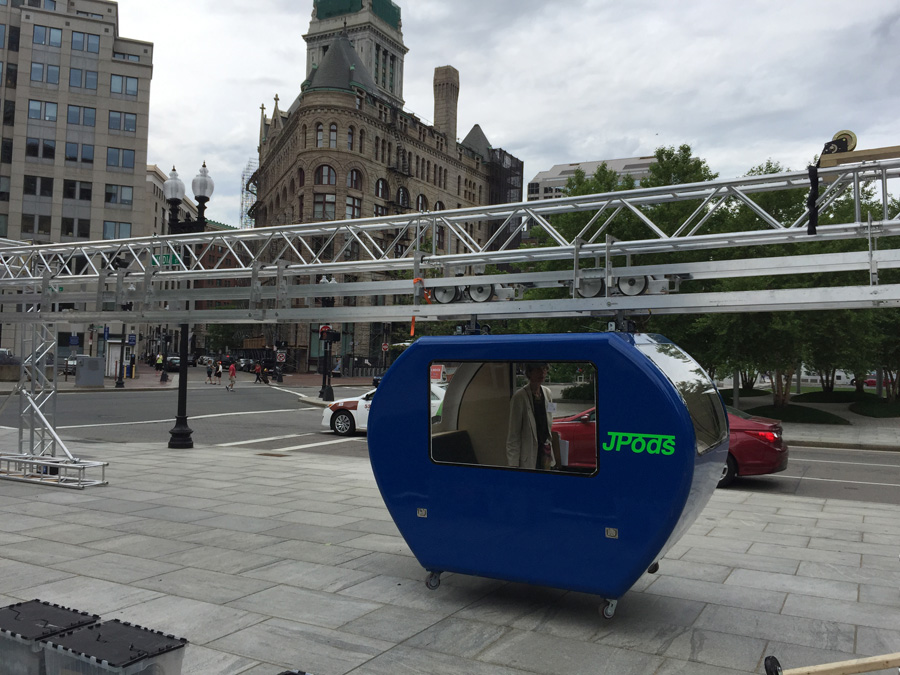
John D. O'Bryant School building the JPods demo unit.
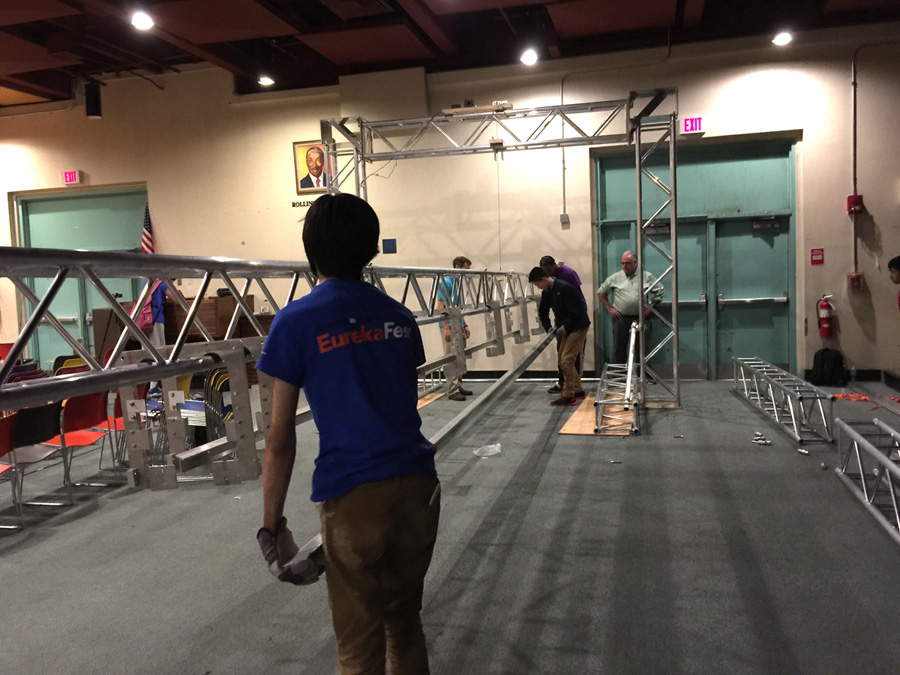
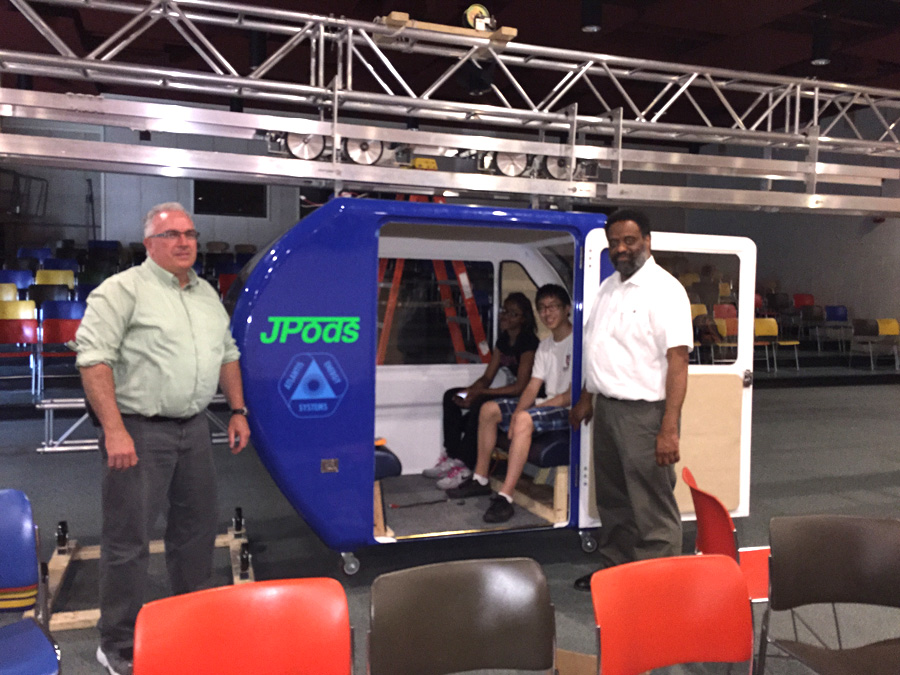
Help design the networks by:
- Clicking on a map to vote for where you want stations.
- Learn to design networks in SketchUp.
- Understand network components.
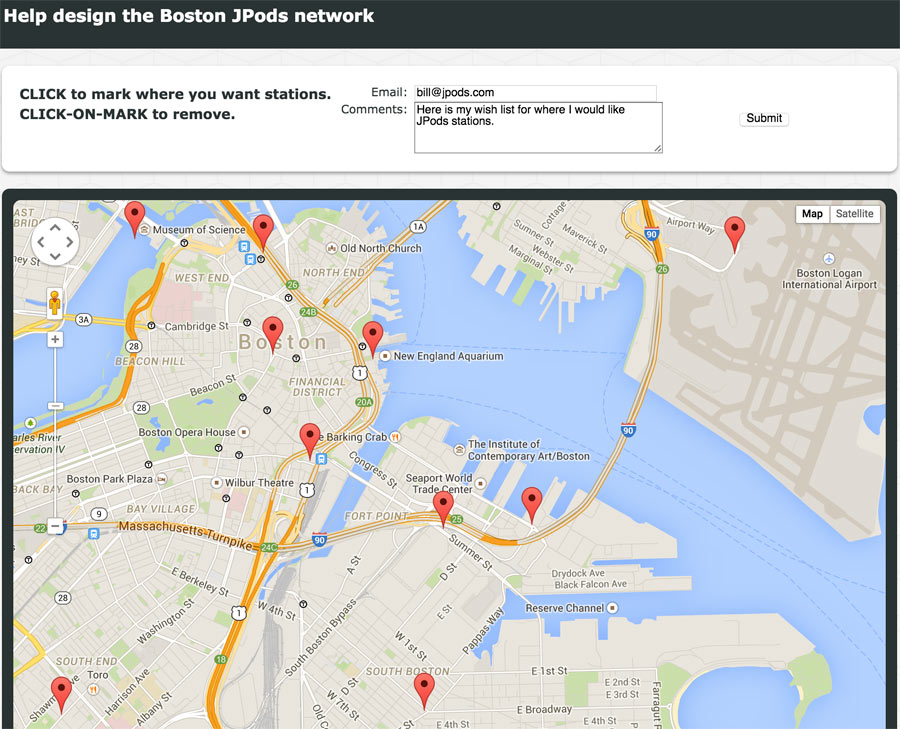
RouteTime Maps showing congestion benefits:
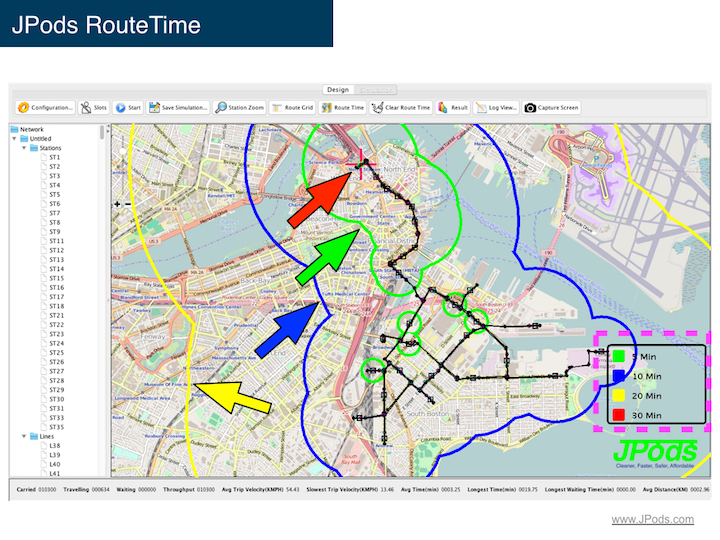
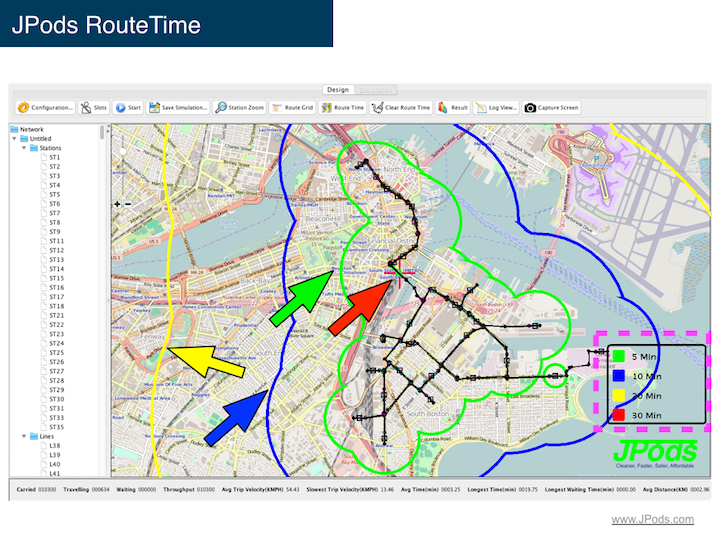
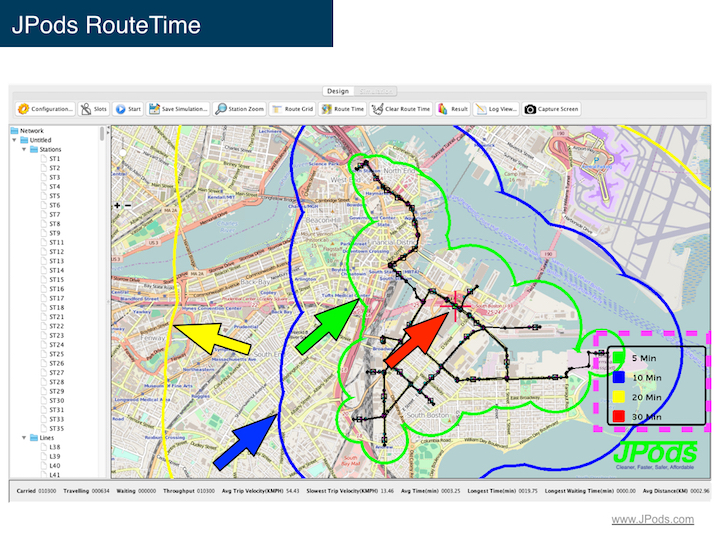
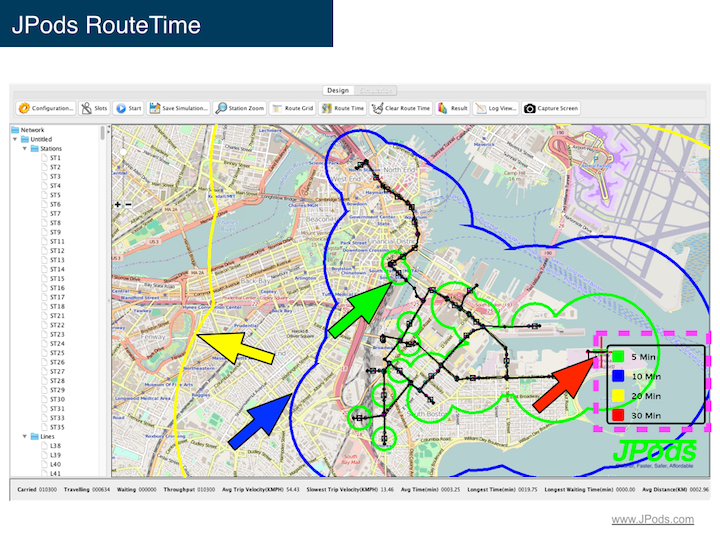
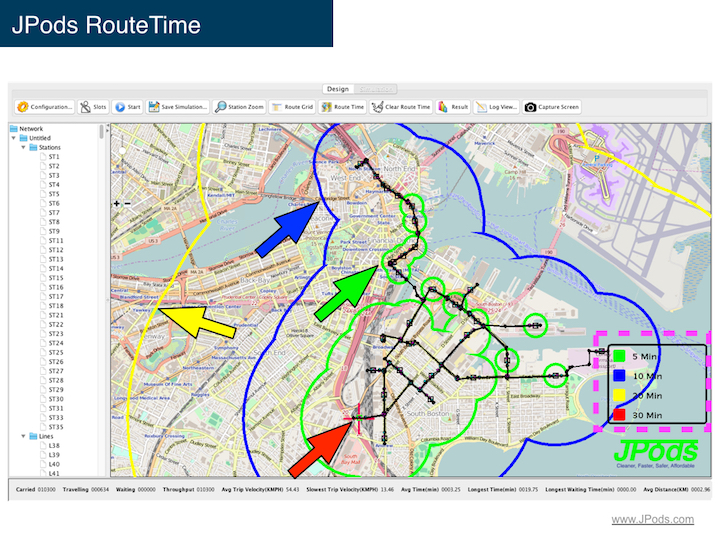
The Reason Massachusetts Senate Bill #1837 is critical is commercializing innovation requires the Rule of Law. Violating the Rule of Law, the Federal communications monopoly resulted in nearly a century of rotary telephones. Millions of jobs were created delivering better services at lower costs after that monopoly was declared unconstitutional in 1982.
Federal violation of the Constitution in communications illustrates
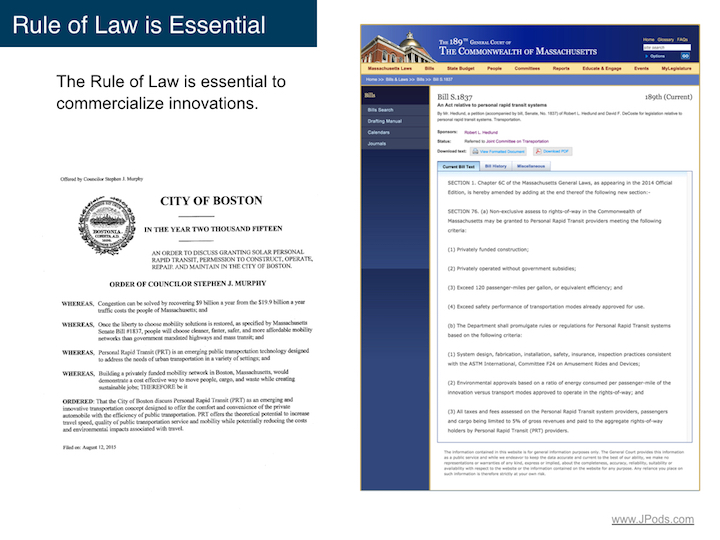
Theme by Danetsoft and Danang Probo Sayekti inspired by Maksimer